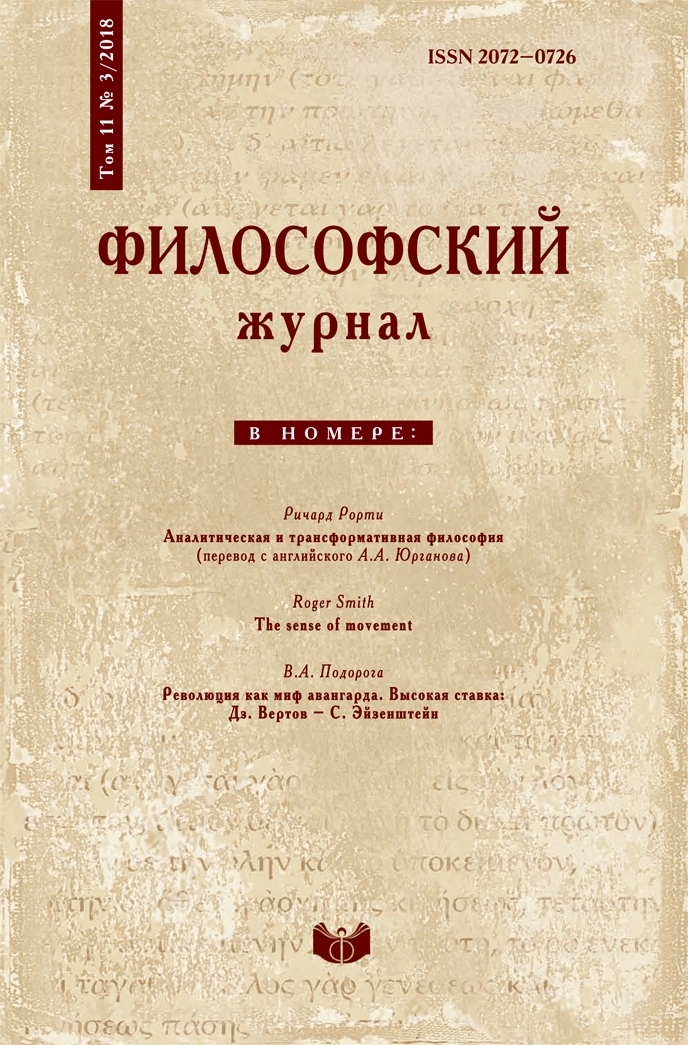Theorizing about consciousness: an epistemological prolegomenon. Part II.
DOI:
https://doi.org/10.21146/2072-0726-2018-11-3-47-55Keywords:
target conflicts of theories, theoretical explanation, ontological arbitrariness, analytical description, theoretical modeling, understanding, proper language of consciousness, informative incommensurability of theoriesAbstract
The second part of of this ongoing study continues the work initiated in the previous fascicle of the Philosophy Journal, where the author characterized the spectrum of basic research intentions which give rise to theorizing as such. A general view of the background makes it easier to perceive the difference between the key modern approaches to the study of consciousness and to compare the objectivist and phenomenological theories for their expressive potential and conceptual resources. The difference between such theoretical procedures as modeling, explanation, prediction, as well as phenomenological and analytical explication, allows to perceive a certain incommensurability between the different theoretical approaches. At the same time, the advancement in bio- and computer modeling of the majority of external manifestations of consciousness makes it much harder to define the limits of consciousness as an object of philosophical inquiry. This difficulty brings to the fore the problem of the 'proper language of consciousness'. Clearly, it is not enough to simply catalogue the corresponding vocabulary. What is required is an analysis of the entire range of metaphors used in the discussions about and in the name of consciousness. One is also bound to to examine the mechanisms and modes of generating discourse based on sense generation and on (intersubjectively explicit) forms of actual understanding. Here the following circumstances may help: the theorizing consciousness manifests itself in two modes, both as an extra-theoretical consumer of theoretical knowledge and as an actual participator in the process of theorizing, capable of correcting its proper forms of self-understanding.






